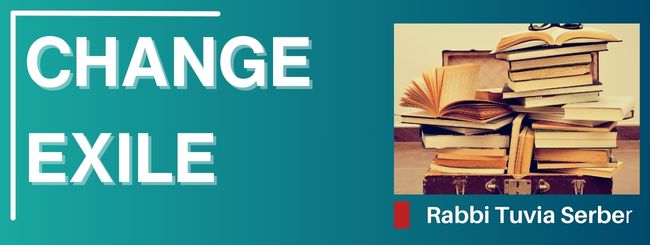בס”ד
Parashat Shmot In this week’s Torah reading we find the beginning of the Exodus. But, as always, beginnings are not easy… After Moshe went to the Pharao to ask the liberation of th Jewish people, the slavery became even worse. Moshe went back to question G-d: Whay were you bad to these people? We can learn deep concepts out of this question. Based on Likutei Sichot vol. 1, p. 115.
This week’s Torah reading is called Shmot, meaning “names.” The story begins with G-d choosing Moses as the leader to take the Jewish people out of Egypt, where they were suffering greatly under slavery. Armed with the tools G-d provided, Moses went to speak to both the Jewish people and Pharaoh, the king of Egypt, to demand the release of the Jewish people.
Pharaoh, however, reacted with anger and disbelief. He dismissed the idea of this “G-d” and refused to let the people go, saying, “These people are my slaves; they are building my cities and storage cities.” (It’s worth noting that the Jewish people did not build the pyramids.) Not only did Pharaoh reject the demand, but he also worsened the slavery, making life harder for the Jewish people.
This created a significant dilemma for Moses. G-d had promised to take the Jewish people out of Egypt, yet things had only gotten worse since Moshe’s mission began. At the end of this week’s Torah portion, Moses turns to G-d with a heartfelt question: “Why have You been so bad to this people? Why did You send me?” (Exodus 5:22). This question remains unanswered in this portion but is addressed in the next week’s reading, Va’era.
In Va’era, G-d responds to Moses by saying that He had not revealed His full essence to the forefathers—Abraham, Isaac, and Jacob—but now He will. G-d assures Moses that He will demonstrate His power and take the Jewish people out of Egypt with great miracles. The story from this point is well known, with the eventual redemption of the Jewish people from Egypt.
Eternal Questions in the Torah
When a question is recorded in the Torah, it remains relevant and eternal, even if it is eventually answered. Moses’ question, “Why have You been so bad to this people?”, is one that resonates with us even today. We, too, are in a form of exile (golus). We do not see G-d’s revealed presence, and we face suffering and challenges. Thus, we can also turn to G-d and ask: “Why have You been so bad to us?” This is a valid question, rooted in a desire for redemption, for the arrival of Mashiach (the Messiah), and for a world filled with G-d’s presence, as the prophet describes: “All humanity will serve God together, shoulder to shoulder.”
A Deeper Lesson
Beyond simply asking why exile continues, we can learn something profound from it. The purpose of exile, as G-d explained to Moses, is refinement. Just as the Jewish people in Egypt needed to endure hardships to appreciate the eventual revelation of G-d, we, too, can use the challenges of exile to prepare ourselves for a greater connection with the Divine.
Transforming Exile
How can we address the bitterness of exile and use it to bring about redemption? The Torah offers two lessons:
- Bitterness in Study of Torah
The Egyptians made the lives of the Jewish people “bitter” with hard labor. We can transform this bitterness by immersing ourselves in the “bitterness” of Torah study. This does not mean Torah is bitter in the literal sense—on the contrary, Torah is sweet and precious. However, the process of learning Torah, grappling with difficult questions, and striving to understand the debates of the sages can feel challenging, even frustrating at times. By dedicating ourselves to this kind of “bitterness,” we nullify the bitterness of exile. Our efforts in Torah study refine us and prepare the world for redemption. - Hard Work in Service of G-d
The Jewish people endured hard labor in Egypt, which became even more severe after Moses’ first encounter with Pharaoh. We can exchange this kind of oppressive hard work for a more meaningful “hard work”—pushing ourselves beyond our comfort zones in serving G-d. For example:- If you are accustomed to studying Torah for one hour, try adding an extra minute.If you give a certain amount of charity (tzedakah), challenge yourself to give more.
The Promise of Redemption
In conclusion, Moses’ question and G-d’s eventual answer remind us that exile is not permanent. The challenges we face have a purpose: to refine us and prepare us for the revelation of G-d’s presence. By transforming the bitterness and hard work of exile into the “bitterness” of Torah study and the “hard work” of devoted service to G-d, we hasten the arrival of Mashiach. And just as G-d assured Moshe, He will one day assure us: “You will see. I will take you out of this exile with great miracles.”
May it happen speedily in our days.
Talk from Rabbi Tuvia Serber
The above is a representation of the spoken text converted to written text.
© Copyright, all rights reserved. If you enjoyed this article, we encourage you to distribute it further.
Our blogs may contain text/quotes/references/links that include copyright material of Mechon-Mamre.org, Aish.com, Sefaria.org, Chabad.org, and/or AskNoah.org, which we use in accordance with their policies.
